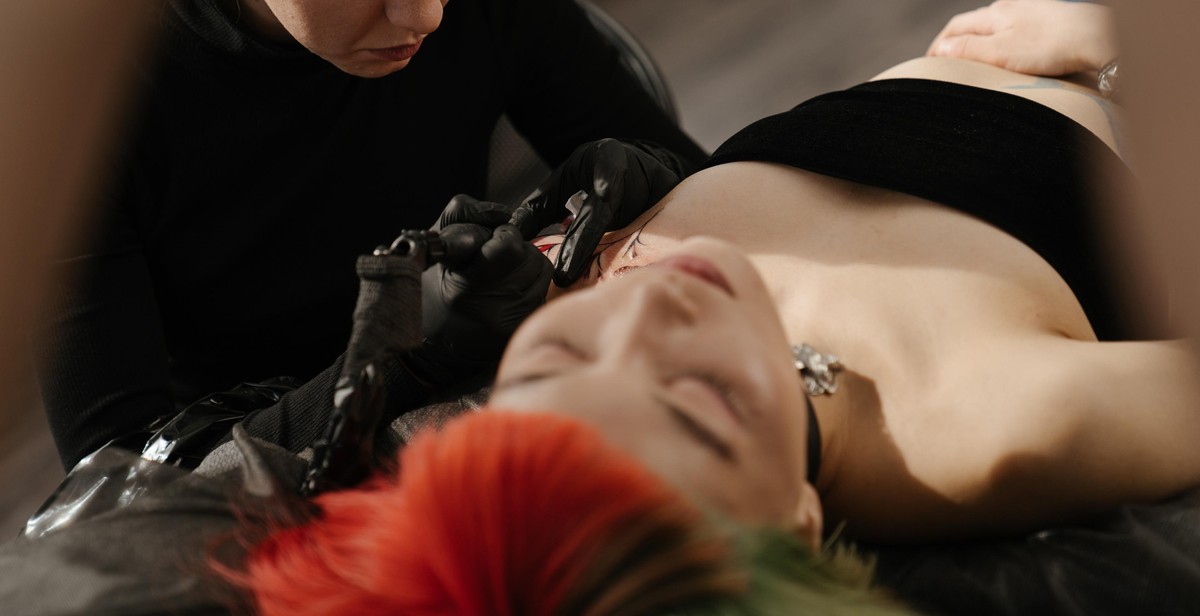How to Prepare for Your First Tattoo: Tips for a Positive and Comfortable Experience
Getting a tattoo can be a thrilling experience, but it can also be nerve-wracking if you’re not prepared. Preparing for your first tattoo can help ensure a positive and comfortable experience. As a professional article writer and content creator, I have had the opportunity to interview numerous tattoo artists and enthusiasts, and have personally gone through the tattooing process myself. Here are some tips to help you prepare for your first tattoo.
1. Choose Your Tattoo Design and Placement
Before getting a tattoo, it’s important to choose a design and placement that you’ll be happy with for years to come. Take the time to research different designs and placements, and consult with your tattoo artist for their expert opinion.
2. Research Your Tattoo Artist and Shop
Not all tattoo artists and shops are created equal. Research your tattoo artist and shop to ensure they have a good reputation and follow proper safety protocols.
3. Prepare Your Body
Leading up to your tattoo appointment, it’s important to prepare your body. This includes staying hydrated, getting a good night’s sleep, and avoiding alcohol and blood thinners.
4. Bring Comfort Items
Getting a tattoo can be a long process, so it’s important to bring comfort items to help you relax. This could include headphones, a book, or a stress ball.
5. Follow Aftercare Instructions
After getting a tattoo, it’s important to follow your tattoo artist’s aftercare instructions to ensure proper healing and to prevent infection.
- By following these tips, you can help ensure a positive and comfortable experience for your first tattoo. Remember to choose your design and placement carefully, research your tattoo artist and shop, prepare your body, bring comfort items, and follow aftercare instructions.

Choosing a Design and Placement for Your First Tattoo
Getting your first tattoo can be an exciting and nerve-wracking experience. Before you make any decisions, it’s important to consider your personal style and preferences, think about the placement, and research the tattoo artist and shop.
Consider Your Personal Style and Preferences
When choosing a design for your first tattoo, it’s important to choose something that you love and that reflects your personal style and preferences. Take some time to think about what you want your tattoo to represent and what kind of design would best reflect that.
It’s also important to consider the size and complexity of the design. If you’re not used to sitting for long periods of time, you may want to start with a smaller, simpler design.
Think About the Placement
The placement of your tattoo is just as important as the design itself. Consider where on your body you want your tattoo to be and whether it will be visible or easily covered up. Keep in mind that certain areas of the body may be more painful to tattoo than others.
If you’re not sure where to place your tattoo, talk to your tattoo artist. They can give you advice based on their experience and help you choose a placement that will work best for your design.
Research the Tattoo Artist and Shop
Before getting your first tattoo, it’s important to do your research and find a reputable tattoo artist and shop. Look for an artist who specializes in the style of tattoo you want and has a portfolio of work that you admire.
Check online reviews and ask for recommendations from friends who have gotten tattoos. Make sure the shop is clean and follows proper safety protocols.
- Consider the following when researching a tattoo artist and shop:
- Experience and training
- Portfolio of work
- Cleanliness and safety protocols
- Reviews and recommendations
By taking the time to choose the right design and placement and researching your tattoo artist and shop, you can help ensure a positive and comfortable experience for your first tattoo.

Preparing for the Appointment
Getting a tattoo is a big decision, and preparing for your first appointment can help make the experience more positive and comfortable. Here are some tips to help you prepare:
Stay Hydrated and Get Plenty of Rest
It’s important to stay hydrated and get plenty of rest before your appointment. Being well-rested and hydrated can help you feel more relaxed and comfortable during the tattooing process. Dehydration can cause your skin to become dry and more sensitive, which can make the tattooing process more painful. Drinking plenty of water and getting enough sleep can also help your body heal faster after the tattoo is done.
Avoid Alcohol and Blood Thinners
It’s important to avoid alcohol and blood thinners before your tattoo appointment. Alcohol can thin your blood and make you bleed more during the tattooing process. Blood thinners like aspirin, ibuprofen, and certain herbal supplements can also increase your risk of bleeding. This can make it more difficult for your tattoo artist to work and can also make the healing process longer and more uncomfortable. If you’re taking any medications, be sure to talk to your doctor before getting a tattoo.
Eat a Healthy Meal Beforehand
Eating a healthy meal before your tattoo appointment can help you feel more energized and focused during the process. It’s important to avoid heavy, greasy foods that can make you feel sluggish or cause indigestion. Instead, opt for a balanced meal that includes protein, healthy fats, and complex carbohydrates. This can help keep your blood sugar levels stable and prevent you from feeling lightheaded or dizzy during the tattooing process.

What to Expect During the Tattooing Process
Getting a tattoo can be an exciting and nerve-wracking experience, especially if it’s your first time. Knowing what to expect during the tattooing process can help you prepare and have a positive and comfortable experience. Here are some things to keep in mind:
Numbing Creams and Pain Management
If you’re worried about the pain of getting a tattoo, you can consider using numbing creams or other pain management techniques. Numbing creams can be applied to the skin before the tattooing process to help reduce discomfort. However, keep in mind that not all tattoo artists allow the use of numbing creams, so it’s important to check with your artist beforehand.
Other pain management techniques include taking over-the-counter pain medication such as ibuprofen or acetaminophen before the tattooing process. However, it’s important to avoid blood-thinning medications such as aspirin, as they can increase the risk of bleeding.
Communication with Your Tattoo Artist
Good communication with your tattoo artist is essential to ensuring a positive and comfortable experience. Before the tattooing process, make sure to discuss any concerns or questions you may have with your artist. This can include discussing the size, placement, and design of your tattoo, as well as any special requests or accommodations you may need.
During the tattooing process, it’s important to continue communicating with your artist. If you’re experiencing discomfort or need a break, let your artist know. They may be able to adjust their technique or take a break to help you feel more comfortable.
Taking Breaks If Needed
Getting a tattoo can be a long and sometimes uncomfortable process. If you need to take a break, don’t be afraid to ask your artist. Taking breaks can help you feel more comfortable and relaxed during the tattooing process. However, keep in mind that taking too many breaks can prolong the process and may result in additional discomfort.
In summary, getting a tattoo can be a positive and comfortable experience if you know what to expect during the tattooing process. Consider using numbing creams or other pain management techniques if needed, communicate with your tattoo artist, and don’t be afraid to take breaks if necessary.
Aftercare and Healing
Getting a tattoo is an exciting experience, but it’s important to take proper care of your new ink to ensure it heals correctly. Here are some tips to help you through the healing process:
Follow Your Tattoo Artist’s Aftercare Instructions
After you get your tattoo, your artist will give you specific instructions on how to care for it. It’s essential that you follow these instructions carefully. They may include washing your tattoo with a gentle soap, using a specific type of lotion or ointment, and covering your tattoo with a bandage or plastic wrap for a few days. Your artist will also let you know how long you should avoid swimming, direct sunlight, and certain activities.
Keep Your Tattoo Clean and Moisturized
Once you’ve left the tattoo shop, it’s up to you to take care of your new tattoo. You’ll need to keep it clean and moisturized to prevent infection and promote healing. Gently wash your tattoo with a mild soap and warm water, then pat it dry with a clean towel. Apply a thin layer of lotion or ointment to keep your skin hydrated and prevent itching.
Avoid Direct Sunlight and Swimming
During the first few weeks of healing, it’s important to avoid direct sunlight and swimming. Sunlight can cause your tattoo to fade or discolor, and chlorine or saltwater can irritate your skin and delay the healing process. If you need to be in the sun, cover your tattoo with clothing or use a high SPF sunscreen to protect it.
- Follow your artist’s aftercare instructions carefully
- Keep your tattoo clean and moisturized
- Avoid direct sunlight and swimming during the healing process
By taking good care of your new tattoo, you’ll ensure that it heals correctly and looks great for years to come.

Conclusion
Getting your first tattoo can be a nerve-wracking experience, but with the right preparation and mindset, it can also be a positive and comfortable one. By following the tips outlined in this article, you can ensure that you are fully prepared for your tattoo appointment and that you have a smooth and enjoyable experience.
Remember to:
- Research the tattoo artist and shop
- Stay hydrated and well-rested
- Eat a good meal before your appointment
- Dress comfortably and appropriately
- Communicate with your tattoo artist
- Take care of your tattoo afterwards
By taking these steps, you can ensure that your first tattoo is a positive and memorable experience. Remember, getting a tattoo is a personal choice and it’s important to do what feels right for you. Don’t be afraid to ask questions or speak up if you’re feeling uncomfortable or unsure.
Lastly, enjoy the process! Getting a tattoo can be a meaningful and transformative experience, and it’s a great way to express yourself and your individuality.
| Author: | [Your Name] |
| Published: | [Date] |
